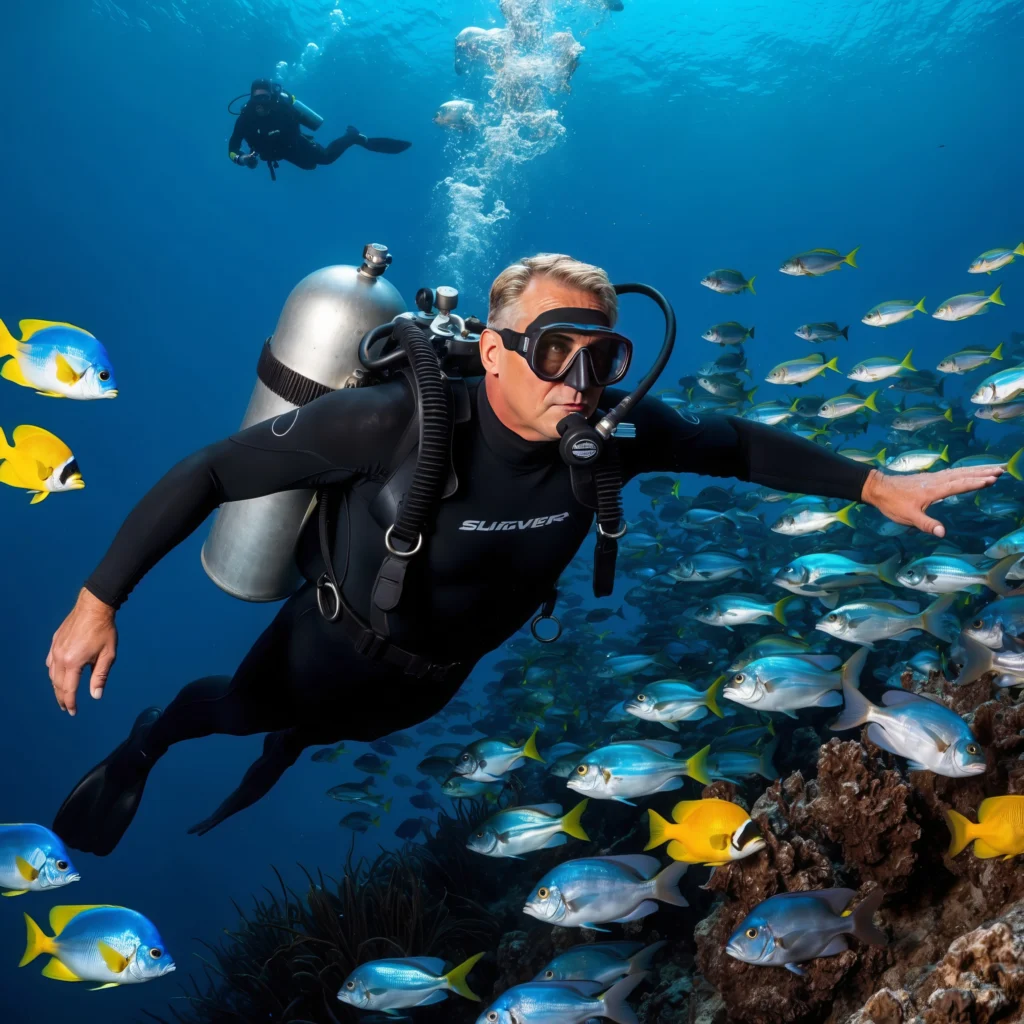Your Dive Experience
Scuba diving fitness rituals are the foundation of safe, confident, and enjoyable diving. Scuba diving opens a portal into another world filled with abundant marine life, coral reefs, caves, and shipwrecks. Every dive offers a new experience, making it one of the most powerful ways to connect with nature. However, scuba diving also carries risks, and being physically prepared is essential for both safety and performance. Keeping your scuba game strong through daily, weekly, monthly, and annual rituals ensures you stay dive-ready at all times.
Scuba diving is a portal into another world with abundant marine life, coral reefs, caves, and shipwrecks. Every dive offers a new experience, making it an unparalleled way to connect with nature and experience the ocean’s wonders. However, scuba diving has risks, and being well-prepared is essential for ensuring safety and enjoyment.Keep your SCUBA game up by reading about our rituals.

Keep your SCUBA Game with these Rituals
Proper preparation, including good fitness levels, confidence in the water, and gear maintenance, is essential for safety and allowing one to explore the ocean confidently. Here’s a list of 10 things to integrate into your lifestyle to ensure you are best prepared for your next dive.
Keep Your SCUBA Game Up
Daily
- General personal fitness: These scuba diving fitness rituals improve breathing efficiency, air consumption, and overall underwater endurance. Incorporate regular aerobic exercise like running or walking. This will help improve stamina and help the body transport oxygen to muscles more efficiently. It will also help you better manage your air consumption for a longer dive!
- Eat a healthy diet – High-fat diets can increase susceptibility to decompression sickness[1]. Maintaining lean mass will improve your body’s ability to carry oxygen and improve circulation, making you less susceptible to decompression sickness. Eat a balance of protein, vegetables, and some fat with plenty of water.
Weekly
- Breathing techniques: Practice yoga or meditation on a weekly basis to drastically improve your diving experience, both physically and mentally. Staying calm and relaxed is an essential part of scuba diving, and focussing on breathing techniques will help you maintain calm throughout your dive while also managing air consumption.
- Strength training—While scuba diving brings the feeling of weightlessness, carrying equipment to the shore certainly doesn’t. Incorporating strength training a few times a week will help ease any discomfort or risk of injury from carrying equipment. Focusing on deadlifts, other posterior chain exercises, and core stabilization exercises will contribute to stability in carrying equipment.
Monthly
- Health checks—Maintaining good and well-being and having regular health checks is essential. Any changes in your medical condition, such as increased blood pressure, could impact your ability to scuba dive safely.
- Swimming—Regular open–or pool-based swimming sessions can help maintain confidence in the water. Practice treading water for several minutes to simulate the feeling of being on the surface before or after a dive.
Annually
- Gear Maintenance—Any personal Scuba gear must be serviced annually or after 80-100 dives, whichever is soonest. Well-maintained scuba gear is essential to a safe dive.
- Gear storage: Tanks should be stored in a cool, dry place away from direct sunlight or heat sources with at least 200 psi to keep out moisture and prevent corrosion.
Mental Conditioning for Safer Diving
Mental strength plays a critical role in scuba diving performance. Stress, anxiety, and panic are leading contributors to underwater accidents. Practicing visualization, controlled breathing, and relaxation techniques improves reaction time and decision-making under pressure. Even experienced divers benefit from mental rehearsal before challenging dives. Combining physical conditioning with mental preparedness completes the full spectrum of scuba diving fitness rituals and dramatically improves long-term diver safety and confidence.
Keep on top of skills.
Scuba diving fitness rituals are particular and, like most skills, lapse over time. It’s essential to practice these skills on at least an annual basis. Not only should you keep up to date with developments in the SCUBA diving world by reading from news and blogs, but you also need to stay updated on your diving skills. Depending on your certification and experience level, you may wish to undertake a refresher dive. Schools such as By the Shore SCUBA Instruction have you covered by our experienced PADI dive master, Kevin Alexander. Check out our page for chartered excursions with a group, and get your flippers wet.
Sources-
[1] https://diving-rov-specialists.com/index_htm_files/scient-c_352-influence-high-fat-diet-occurrence-deco-stress.pdf
